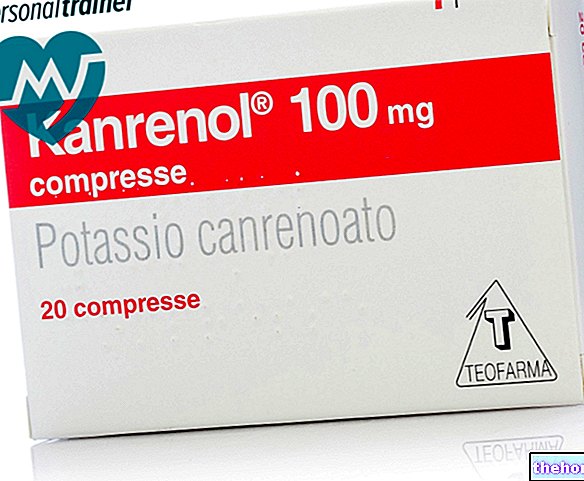Active ingredients: Indomethacin
Indoxen 25 mg capsules
Indoxen 50 mg capsules
Indoxen package inserts are available for pack sizes: - Indoxen 25 mg capsules, Indoxen 50 mg capsules
- Indoxen 50 mg suppositories, Indoxen 100 mg suppositories
Why is Indoxen used? What is it for?
Indoxen contains the active substance indomethacin, which belongs to the class of non-steroidal anti-inflammatory drugs (NSAIDs).
Indoxen is indicated in the treatment of numerous inflammatory and non-inflammatory diseases affecting the musculoskeletal system, including:
- rheumatoid arthritis (a rheumatic disease)
- osteoarthritis (chronic degenerative joint disease that occurs mainly in old age)
- gout (inflammation of the joints).
Contraindications When Indoxen should not be used
Do not take Indoxen
- if you are allergic to indomethacin, acetylsalicylic acid or any of the other ingredients of this medicine (listed in section 6);
- if you are under 14 years of age;
- if you have ever had episodes of stomach or bowel bleeding (gastrointestinal haemorrhage) or perforation after previous drug treatments;
- if you have ever had stomach bleeding or injury (ulcer) (two or more distinct episodes of proven ulceration or bleeding);
- if you have a severe disease where the heart is unable to pump enough blood to meet the body's needs (severe heart failure);
- if you have particular, excessive and / or violent reactions not of an allergic nature towards different substances such as medicines, foods, etc. (idiosyncratic manifestations);
- if you have mental disorders;
- if you have epilepsy;
- if you have Parkinson's disease;
- if you are in the third trimester of pregnancy (see section "Pregnancy, breast-feeding and fertility");
- if you are breastfeeding.
Precautions for use What you need to know before you take Indoxen
Talk to your doctor or pharmacist before taking Indoxen.
Tell your doctor immediately if during treatment with Indoxen:
- experience extensive and severe skin reactions mainly in the first weeks of treatment, as severe skin reactions which can be fatal (e.g. exfoliative dermatitis, Stevens-Johnson syndrome and toxic epidermal necrolysis) have been reported very rarely. Indoxen should be discontinued at the first appearance of skin rash, mucosal lesions or any other signs of hypersensitivity. Stop the treatment and see your doctor if you experience these reactions;
- you get any unusual stomach and bowel symptoms especially when starting treatment with this medicine;
- experience eye problems as Indoxen can cause eye problems. In case of prolonged treatment, your doctor will have you have eye tests at regular intervals;
- develop fluid retention and swelling from fluid accumulation (edema);
- have headache (headache) sometimes accompanied by dizziness or lightheadedness, particularly if this occurs early in treatment with Indoxen. The intensity of these effects leads to discontinuation of treatment, but if headache persists despite dose reduction, Indoxen therapy should be discontinued. You should consult your doctor before taking Indoxen:
- if you are elderly, as it may have side effects, especially bleeding and perforation of the stomach and intestines which can be fatal (see section "Elderly patients");
- if you have or have ever had problems with your upper stomach and intestines, as Indoxen may not be suitable for you (see section "Do not take Indoxen");
- if you are using medicines that may increase the risk of bleeding or ulceration such as:
- medicines that reduce the clumping of platelets eg aspirin,
- steroidal anti-inflammatory medicines (corticosteroids given by mouth),
- medicines that delay blood clotting (anticoagulants) eg. warfarin,
- antidepressants (selective serotonin reuptake inhibitors) (see section "Other medicines and Indoxen");
- if you have ever had inflammatory bowel diseases such as ulcerative colitis or Crohn's disease as these conditions may get worse;
- if you have an "infection";
- if you are not properly hydrated;
- if you have kidney problems;
- if you have liver problems;
- if you have or have had high blood pressure (hypertension);
- if you have had problems with blood circulation to the brain (e.g. stroke);
- if you have heart problems (congestive heart failure);
- if you are at risk of having problems with your heart, brain or blood vessels (e.g. if you have high blood pressure, diabetes, high cholesterol, smoke, etc.);
- if you are a woman and are planning to become pregnant (see section "Pregnancy, breast-feeding and fertility");
- if you are a woman and have fertility problems or are undergoing fertility investigations, why you should stop treatment with Indoxen (see section "Pregnancy, breast-feeding and fertility");
Pay particular attention:
- avoid using Indoxen together with other NSAIDs, including selective cyclo oxygenase-2 (COX2) inhibitors, as it increases the chance that you will have side effects;
- side effects can be reduced by using the lowest effective dose for the shortest possible time (see section 3 "How to take Indoxen");
- Indoxen can hide the signs of an infection;
- Bleeding from the gastrointestinal tract (stomach and intestines), ulcerations (lesions) or perforations, which can even cause death, can occur at any time during treatment with NSAIDs, including Indoxen.
Children and adolescents
Indoxen should not be used in patients under 14 years of age.
Senior citizens
Elderly patients are more likely to experience side effects, especially bleeding and perforation in the stomach or intestines which are usually more serious and can be fatal. If you are elderly, your doctor will prescribe a low dose of Indoxen.
As a precaution, your doctor may have you check your kidney and liver function and prescribe medicines that work by protecting the gastrointestinal mucosa such as misoprostol or proton pump inhibitors.
Tell your doctor about any unusual stomach and bowel symptoms especially at the start of treatment with this medicine.
Interactions Which drugs or foods may change the effect of Indoxen
Tell your doctor or pharmacist if you are using, have recently used or might use any other medicines.
Tell your doctor if you are using or should use:
- probenecid (medicine for gout)
- furosemide (medicine that increases urine production)
- steroidal anti-inflammatory medicines (corticosteroids)
- medicines that delay blood clotting (anticoagulants) eg. warfarin
- medicines that reduce the clumping of platelets eg aspirin
- antidepressants (selective serotonin reuptake inhibitors)
- medicines to lower blood pressure, particularly when used in combination
- diuretics
- angiotensin converting enzyme inhibitors
- angiotensin II antagonists.
Warnings It is important to know that:
Pregnancy, breastfeeding and fertility
If you are pregnant or breast-feeding, think you may be pregnant or are planning to have a baby, ask your doctor or pharmacist for advice before taking this medicine.
Conception, first and second trimester of pregnancy
Do not take Indoxen if you are planning to become pregnant or if you are in the first or second trimester of pregnancy without consulting your doctor. Your doctor will consider whether the benefits to you clearly outweigh the risks to the embryo or fetus.
Third trimester of pregnancy
Do not take Indoxen during the third trimester of pregnancy as it can cause damage to the heart, lungs, kidneys of the fetus. It can also cause a prolongation of the bleeding time in the mother and newborn, which can occur even at very low doses and an "inhibition of contractions of the uterus" in the mother with delay or prolongation of delivery.
Feeding time
Do not use Indoxen if you are breastfeeding.
Driving and using machines
Indoxen can cause dizziness which may affect the ability to drive and use machines. If you have these symptoms, avoid driving a vehicle or using machines.
Indoxen contains lactose
If you have been told by your doctor that you have an intolerance to some sugars, contact your doctor before taking this medicinal product.
Dose, Method and Time of Administration How to use Indoxen: Posology
Always take this medicine exactly as your doctor or pharmacist has told you. If in doubt, consult your doctor or pharmacist.
Your doctor will work out the most suitable dose for you based on your response to treatment and tolerance to the medicine, starting with a low dose of Indoxen equal to 75 mg per day. If necessary, your doctor will gradually increase the dose.
The recommended dose is 100-150 mg per day. The maximum dose is 200 mg per day:
- 1-2 capsules of 25 mg 2-4 times a day, or
- 1 capsule of 50 mg 2-4 times a day.
Take the capsules whole, preferably on a full stomach.
Use in children and adolescents
Indoxen should not be used in patients under 14 years of age.
Use in elderly patients
If you are elderly, your doctor will tell you exactly what dose of Indoxen is suitable for you and will consider a possible reduction in the doses indicated above.
Use in patients with liver and kidney diseases
Indoxen should be used with particular care in these patients.
If you forget to take Indoxen
Do not take a double dose to make up for a forgotten dose.
If you stop taking Indoxen
If you have any further questions on the use of this medicine, ask your doctor or pharmacist.
Overdose What to do if you have taken too much Indoxen
If you take more Indoxen than you should
Follow your doctor's instructions exactly.
In case of accidental ingestion of an overdose of Indoxen, notify your doctor immediately or go to the nearest hospital.
Side Effects What are the side effects of Indoxen
Like all medicines, this medicine can cause side effects, although not everybody gets them.
The side effects are:
- headache (headache),
- dizziness,
- daze,
- mental confusion,
- syncope (fainting),
- drowsiness,
- convulsions,
- coma,
- depression sense of unreality (psychic disorder),
- formation of blood clots that cause heart attack or stroke,
- edema (fluid retention),
- high blood pressure (hypertension),
- heart problems (heart failure),
- peptic ulcer (stomach injury),
- gastrointestinal perforation (of the stomach or intestines),
- gastrointestinal bleeding (bleeding from the stomach or intestines),
- nausea,
- He retched,
- diarrhea,
- flatulence (producing area in the belly),
- constipation (constipation),
- dyspepsia (difficult digestion),
- abdominal pain,
- melaena (blood in the stool),
- hematemesis (vomiting of blood),
- ulcerative stomatitis (lesions of the mouth),
- exacerbation of colitis and Crohn's disease (worsening of inflammatory bowel diseases),
- gastritis (inflammation of the stomach),
- jaundice (yellowing of the skin and eye),
- hepatitis (inflammation of the liver),
- itch,
- hives (rash),
- skin disease characterized by the formation of nodules (erythema nodosum),
- inflammation of blood vessels (angiitis),
- swelling of the skin (angioneurotic edema),
- redness of the skin (skin rash),
- severe skin reactions (Stevens-Johnson Syndrome and Toxic Epidermal Necrolysis),
- Hair loss,
- dyspnoea (difficult breathing),
- asthma,
- leukopenia (reduced number of white blood cells), purpura (red spots on the skin),
- aplastic anemia (insufficient production of blood cells by the bone marrow),
- haemolytic anemia (destruction of red blood cells),
- thrombocytopenia (reduction in the number of platelets),
- agranulocytosis (reduction in the number of a type of white blood cell),
- depression of bone marrow activity,
- secondary anemia and bleeding of the stomach or bowel overt or occult,
- blurred vision,
- orbital and periorbital pain (pain in the eye),
- visual problems (corneal deposits, retinal and macular changes),
- hum,
- deafness,
- vaginal bleeding,
- hyperglycemia (increase in the amount of sugar in the blood),
- glycosuria (presence of glucose in the urine),
- ulcerative stomatitis (mouth lesions),
- epistaxis (nosebleed).
Reporting of side effects
If you get any side effects, talk to your doctor or pharmacist. This includes any possible side effects not listed in this leaflet. You can also report side effects directly via the national reporting system at www.agenziafarmaco.gov.it/it/responsabili. By reporting side effects you can help provide more information on the safety of this medicine.
Expiry and Retention
Keep this medicine out of the sight and reach of children.
Do not use this medicine after the expiry date which is stated on the package after EXP. The expiry date refers to the last day of that month.
Do not throw any medicines via wastewater or household waste. Ask your pharmacist how to throw away medicines you no longer use. This will help protect the environment.
Deadline "> Other information
What Indoxen contains
- The active ingredient is indomethacin. Each capsule contains 25 mg or 50 mg of indomethacin.
- The other ingredients are lactose, lecithin, silica, magnesium stearate.
- The components of the capsules are gelatin, titanium dioxide, black iron oxide (only for 25 mg capsules), indigo carmine, yellow iron oxide (only for 50 mg capsules).
What Indoxen looks like and contents of the pack
Each pack contains 25 capsules of 25 mg or 25 capsules of 50 mg.
Source Package Leaflet: AIFA (Italian Medicines Agency). Content published in January 2016. The information present may not be up-to-date.
To have access to the most up-to-date version, it is advisable to access the AIFA (Italian Medicines Agency) website. Disclaimer and useful information.
01.0 NAME OF THE MEDICINAL PRODUCT -
INDOXEN
02.0 QUALITATIVE AND QUANTITATIVE COMPOSITION -
INDOXEN 25 mg hard capsules
Active principle
Indomethacin 25 mg.
Excipients with known effects: lactose 210 mg.
INDOXEN 50 mg hard capsules
Active principle
Indomethacin 50 mg.
Excipients with known effects: lactose 289 mg.
INDOXEN 50 mg suppositories
Active principle
Indomethacin 50 mg.
INDOXEN 100 mg suppositories
Active principle
Indomethacin 100 mg.
For the full list of excipients, see section 6.1.
03.0 PHARMACEUTICAL FORM -
Hard capsules.
Suppositories.
04.0 CLINICAL INFORMATION -
04.1 Therapeutic indications -
Indoxen is indicated in the therapy of many inflammatory and non-inflammatory affections of the musculoskeletal system, including: rheumatoid arthritis, arthrosis, gout.
Rheumatoid arthritis
In many patients with chronic rheumatoid arthritis, Indoxen produces a significant reduction in pain and stiffness within 48 hours. In other patients, treatment should be continued longer before there is subjective improvement or objective reduction in swelling and joint pain. In some cases of chronic rheumatoid arthritis it may be necessary to continue Indoxen therapy for at least one month before it can be concluded that it has not provided significant benefit. In acute rheumatoid arthritis and exacerbations of chronic rheumatoid arthritis Indoxen it usually induces rapid improvement with decreased pain, tenderness and reduced swelling and stiffness.
Arthrosis
Indoxen readily reduces pain and often increases joint mobility. Progressively brings the patient with reduced joint mobility back to a higher degree of activity and reduces the symptoms of uncomplicated osteoarthritis in a high percentage of patients.
Gout
In acute gout attacks, the response to Indoxen is usually rapid and often prominent. Marked pain relief can be achieved within 2-4 hours. The tenderness and warmth disappear within 24-36 hours and the swelling decreases in space. 3-5 days.
04.2 Posology and method of administration -
The dosage of Indoxen must be adapted to each individual patient, based on the therapeutic response and tolerance to the drug. Starting with low doses (75 mg per day), if the initial therapeutic response is inadequate, the dosage should be gradually increased. of 100-150 mg per day usually ensures an adequate therapeutic response.
Doses above 200 mg per day should rarely be used. By reaching or exceeding this posology, there may be an increase in the incidence of side effects, in particular headache and gastro-intestinal disorders. In this case, a temporary reduction of the dosage may be necessary.
Recommended dosage: 100-200 mg per day, as follows:
- 25 mg capsules:
1-2 capsules 2-4 times a day orally (swallow the capsules whole, preferably on a full stomach);
- 50 mg capsules:
1 capsule 2-4 times a day orally (swallow the capsules whole, preferably on a full stomach);
- 50 mg suppositories:
1 suppository 2-4 times a day;
- 100 mg suppositories:
1 suppository 1-2 times a day.
Wishing to combine the administration of Indoxen capsules with Indoxen suppositories, it is advisable to administer a suppository of 100 mg in the evening before bedtime and the following day to administer the capsules, just enough to reach the established daily dosage.
Undesirable effects can be minimized by using the lowest effective dose for the shortest possible duration of treatment needed to control symptoms (see section 4.4).
Elderly patients
In the treatment of elderly patients, Indoxen should be used with extreme caution and the dosage should be carefully established by the physician who will have to evaluate a possible reduction of the dosages indicated above.
Patients with renal insufficiency
No clinical studies have been performed in patients with renal insufficiency and therefore Indoxen should be used with particular care in these patients.
Patients with hepatic insufficiency
No clinical studies have been performed in patients with hepatic insufficiency and therefore Indoxen should be used with particular care in these patients.
Pediatric population
Indoxen should not be used in patients up to 14 years of age. The indications, posology and safety of treatment has not been established in patients in this population (see section 4.3).
04.3 Contraindications -
Hypersensitivity to the active substance or to any of the excipients listed in section 6.1.
In children under the age of 14.
History of gastrointestinal bleeding or perforation related to previous active treatments or history of recurrent peptic ulcer / haemorrhage (two or more distinct episodes of proven ulceration or bleeding).
Severe heart failure.
Subjects with idiosyncratic manifestations, in patients with mental disorders, in epileptics, in parkinsonians.
Indoxen is contraindicated in patients allergic to acetylsalicylic acid.
Third trimester of pregnancy and lactation (see section 4.6).
Suppositories are contraindicated in patients with a recent history of proctitis.
04.4 Special warnings and appropriate precautions for use -
Headache, sometimes accompanied by dizziness or lightheadedness, can usually occur in the initial phase of treatment with Indoxen. Starting therapy with low doses and gradually increasing the dosage, the incidence of headache is minimized. The intensity of these effects rarely leads to discontinuation of treatment, but if the headache persists despite dose reduction, indomethacin should be discontinued.
The use of Indoxen should be avoided in conjunction with NSAIDs including selective COX-2 inhibitors.
Undesirable effects can be minimized with the use of the lowest effective dose for the shortest possible duration of treatment needed to control symptoms (see section 4.2 and the paragraphs below on gastrointestinal and cardiovascular risks).
Elderly patients have an increased frequency of adverse reactions to NSAIDs, especially gastrointestinal bleeding and perforation, which can be fatal (see section 4.8).
Gastrointestinal bleeding, ulceration and perforation: Gastrointestinal bleeding, ulceration and perforation, which can be fatal, have been reported during treatment with all NSAIDs, at any time, with or without warning symptoms or a previous history of serious gastrointestinal events.
In the elderly and in patients with a history of ulcer, particularly if complicated with haemorrhage or perforation (see section 4.3), the risk of gastrointestinal bleeding, ulceration or perforation is higher with increasing doses of NSAIDs. These patients should start treatment with the lowest available dose. Concomitant use of protective agents (misoprostol or proton pump inhibitors) should be considered for these patients and also for patients taking low dose aspirin or other drugs that may increase the risk of gastrointestinal events (see below and section 4.5).
Patients with a history of gastrointestinal toxicity, particularly the elderly, should report any unusual gastrointestinal symptoms (especially gastrointestinal bleeding) particularly in the initial stages of treatment.
Caution should be exercised in patients taking concomitant medications that may increase the risk of ulceration or bleeding, such as oral corticosteroids, anticoagulants such as warfarin, selective serotonin reuptake inhibitors or antiplatelet agents such as aspirin (see section 4.5).
When gastrointestinal bleeding or ulceration occurs in patients taking Indoxen the treatment should be discontinued.
NSAIDs should be administered with caution to patients with a history of gastrointestinal disease (ulcerative colitis, Crohn's disease) as these conditions may be exacerbated (see section 4.8).
The risks of continuing therapy with Indoxen should be compared with the benefits that can be derived from it in each individual patient. In some patients treated with Indoxen suppositories, tenesmus and irritation of the rectal mucosa have been reported; the sigmoidoscopic examination, carried out in numerous patients, however, did not reveal any modification of the mucosa.
Like other drugs with anti-inflammatory-analgesic-antipyretic activity, indomethacin can also mask the objective and subjective symptoms that usually accompany infectious diseases. The doctor must keep this possibility in mind, in order to avoid any delay in undertaking the appropriate therapy for the infectious process. Indomethacin should be used with caution in patients with ongoing infectious processes, but kept under therapeutic control.
Corneal deposits and retinal changes, including in the macula, have been reported in some patients with rheumatoid arthritis who received Indoxen. Identical changes have been reported in some rheumatoid arthritis patients who did not receive Indoxen.
However, in the case of long-term therapy, it is advisable to perform ophthalmological examinations at periodic intervals, since the above reactions may initially be asymptomatic. Patients should be followed closely by the physician in order to detect any unusual manifestations of drug idiosyncrasy.
The use of Indoxen, as with any prostaglandin synthesis and cyclooxygenase inhibitor drug, is not recommended for women intending to become pregnant.
Indoxen administration should be discontinued in women who have fertility problems or who are undergoing fertility investigations.
Serious skin reactions, some of them fatal, including exfoliative dermatitis, Stevens-Johnson syndrome and toxic epidermal necrolysis, have been reported very rarely in association with the use of NSAIDs (see section 4.8). In the early stages of therapy, patients appear to be at higher risk: the onset of the reaction occurs in most cases within the first month of treatment.
Indoxen should be discontinued at the first appearance of skin rash, mucosal lesions or any other signs of hypersensitivity.
Cardiovascular and cerebrovascular effects
Adequate monitoring and instruction are required in patients with a history of mild to moderate hypertension and / or congestive heart failure as fluid retention and edema have been reported in association with NSAID treatment.
Clinical studies and epidemiological data suggest that the use of some NSAIDs (especially at high doses and for long-term treatment) may be associated with a modest increased risk of arterial thrombotic events (eg myocardial infarction or stroke). There were insufficient data to exclude a similar risk for indomethacin.
Patients with uncontrolled hypertension, congestive heart failure, established ischemic heart disease, peripheral arterial disease and / or cerebrovascular disease should only be treated with indomethacin after careful consideration. Similar considerations should be made before initiating long-term treatment in patients with risk factors for cardiovascular disease (eg hypertension, hyperlipidaemia, diabetes mellitus, smoking).
No clinical studies have been performed in patients with renal insufficiency and hepatic insufficiency therefore Indoxen should be used with particular care in these patients.
Indoxen 25 mg and Indoxen 50 mg hard capsules contain lactose.
Patients with rare hereditary problems of galactose intolerance, the Lapp lactase deficiency, or glucose-galactose malabsorption should not take this medicine.
04.5 Interactions with other medicinal products and other forms of interaction -
The antagonism between indomethacin and acetylsalicylic acid observed in the laboratory appears to be of little clinical relevance. The total plasma concentration of indomethacin plus its inactive metabolites increases with the simultaneous administration of probenecid, probably due to the reduced tubular secretion of the former. However, it has not been established. whether the concentration of free indomethacin in the plasma is altered or whether the dosage of indomethacin should be corrected when the two drugs are used together. Indomethacin does not interfere with the uricosuric effects of probenecid.
Indomethacin antagonizes the natriuretic effect of furosemide.
Corticosteroids: increased risk of gastrointestinal ulceration or bleeding (see section 4.4).
Anticoagulants: NSAIDs may enhance the effects of anticoagulants, such as warfarin (see section 4.4).
Antiplatelet agents and selective serotonin reuptake inhibitors (SSRIs): increased risk of gastrointestinal bleeding (see section 4.4).
Diuretics, ACE inhibitors and angiotensin II antagonists:
NSAIDs may reduce the effect of diuretics and other antihypertensive drugs. In some patients with impaired renal function (eg dehydrated patients or elderly patients with impaired renal function) co-administration of an ACE inhibitor or an angiotensin antagonist II and agents that inhibit the cyclo-oxygenase system can lead to further deterioration of renal function, including possible acute renal failure, usually reversible. These interactions should be considered in patients taking Indoxen concomitantly with ACE inhibitors or angiotensin II antagonists. Therefore, the combination should be administered with caution, especially in elderly patients.
Patients should be adequately hydrated and monitoring of renal function should be considered after initiation of concomitant therapy.
04.6 Pregnancy and breastfeeding -
Pregnancy
Inhibition of prostaglandin synthesis can adversely affect pregnancy and / or embryo / fetal development.
Results of epidemiological studies suggest an increased risk of miscarriage and cardiac malformation and gastroschisis after use of a prostaglandin synthesis inhibitor in early pregnancy. The absolute risk of cardiac malformations increased from less than 1% to approximately 1.5%. The risk has been considered to increase with dose and duration of therapy. In animals, administration of prostaglandin synthesis inhibitors has been shown to cause increased loss of pre- and post-implantation and of embryo-fetal mortality.
In addition, an increased incidence of various malformations, including cardiovascular, has been reported in animals given prostaglandin synthesis inhibitors during the organogenetic period.
During the first and second trimester of pregnancy, Indoxen should not be administered except when strictly necessary.
If Indoxen is used by a woman attempting to conceive, or during the first and second trimester of pregnancy, the dose and duration of treatment should be kept as low as possible.
During the third trimester of pregnancy, all prostaglandin synthesis inhibitors can expose
the fetus to:
- cardiopulmonary toxicity (with premature closure of the arterial duct and pulmonary hypertension);
- renal dysfunction, which can regress into renal failure with oligo-hydroamnios;
the mother and the newborn, at the end of pregnancy to:
- possible prolongation of bleeding time and antiplatelet effect which may occur even at very low doses;
- inhibition of uterine contractions resulting in delayed or prolonged labor.
Consequently, Indoxen is contraindicated during the third trimester of pregnancy.
Feeding time
Since it has not yet been established that it is safe to use Indoxen while breastfeeding, its use in these situations should be excluded.
04.7 Effects on ability to drive and use machines -
Patients should be warned of the possible onset of dizziness, and in such an event they should avoid the use of motor vehicles and potentially dangerous activities that require special attention.
04.8 Undesirable effects -
Adverse reactions have been identified but frequencies are not reported due to the limited patient population.
Undesirable effects may require dose adjustment and, in severe cases, discontinuation of treatment.
All undesirable effects are reported according to MedDRA (Preferred Term) terminology.
Disorders of the blood and lymphatic system
Anemia, aplastic anemia, haemolytic anemia, secondary anemia, agranulocytosis, bone marrow failure, leukopenia, thrombocytopenia.
Disorders of the immune system
Anaphylactic shock.
Metabolism and nutrition disorders
Hyperglycemia.
Psychiatric disorders
Confusional state, depersonalization, depression, insomnia, nervousness.
Nervous system disorders
Coma, convulsion (seizure), dizziness, headache, paraesthesia, somnolence, syncope, tremor, nervous system disorder.
Eye disorders
Corneal deposits, eye pain, retinal or macular pathology, retinopathy, blurred vision.
Ear and labyrinth disorders
Loss of hearing, tinnitus, vertigo.
Cardiac pathologies
Palpitations, tachycardia.
Vascular pathologies
Hypertension, hypotension, vasculitis.
Respiratory, thoracic and mediastinal disorders
Asthma, epistaxis, dyspnoea (sudden).
Gastrointestinal disorders
Abdominal pain, colitis, constipation, Crohn's disease, diarrhea, dyspepsia, flatulence, gastritis, gastrointestinal disease, sometimes fatal gastrointestinal haemorrhage, particularly in the elderly (see section 4.4), gastrointestinal perforation, haematemesis, melaena, mouth ulceration, nausea , peptic ulcer, vomiting.
Hepatobiliary disorders
Hepatitis some cases with a fatal course, jaundice have been reported.
Skin and subcutaneous tissue disorders
Alopecia, angioedema, erythema nodosum, pruritus, purpura, rash, Stevens-Johnson syndrome, toxic epidermal necrolysis, urticaria.
Renal and urinary disorders
Insufficiency in renal function, glycosuria.
Diseases of the reproductive system and breast
Vaginal bleeding.
General disorders and administration site conditions
Asthenia, fatigue, malaise, edema.
Diagnostic tests
Blood urea increased, INR increased.
Clinical studies and epidemiological data suggest that the use of some NSAIDs (especially at high doses and for long-term treatment) may be associated with a modest increased risk of arterial thrombotic events (eg, myocardial infarction or stroke) ( see section 4.4).
Peptic ulcers, gastrointestinal perforation or haemorrhage, sometimes fatal, may occur, particularly in the elderly (see section 4.4).
Reporting of suspected adverse reactions
Reporting of suspected adverse reactions occurring after authorization of the medicinal product is important as it allows continuous monitoring of the benefit / risk balance of the medicinal product. Healthcare professionals are asked to report any suspected adverse reactions via the national reporting system. "address www.agenziafarmaco.gov.it/it/responsabili.
04.9 Overdose -
Patients should be advised to strictly adhere to the prescribed dosage, which must be adapted to each individual patient, therapeutic response and drug tolerance.
In the event of overdose, the most suitable emergency symptomatic therapies must be adopted (such as gastric lavage, osmotic diuresis, dialysis, etc.).
05.0 PHARMACOLOGICAL PROPERTIES -
05.1 "Pharmacodynamic properties -
Pharmacotherapeutic group: anti-inflammatory and antirheumatic drugs.
ATC code: M01AB01.
Indomethacin is a powerful non-steroidal anti-inflammatory drug with marked analgesic and antipyretic activity. Its mechanism of action is to be related to the inhibition of prostaglandin biosynthesis (by inhibition of cyclooxygenase) and its therapeutic activity is not linked. to pituitary-adrenal stimulation.
05.2 "Pharmacokinetic properties -
Indomethacin is rapidly and almost completely absorbed from the gastrointestinal tract after oral administration.
The maximum plasma concentration is reached within 3 hours in the fasted subject, but may occur somewhat delayed if the drug is taken after a meal. The plasma concentrations required for an anti-inflammatory effect are normally less than 1 mcg / ml. The steady-state concentrations during chronic administration are about 0.5 mcg / ml. 90% of indomethacin is bound to plasma proteins and the drug is also extensively bound to tissues. The concentration in the cerebrospinal fluid is low. Indomethacin is largely transformed into inactive metabolites. About half of a single oral dose is demethylated and about 10% is conjugated to glucuronic acid by hepatic microsomal enzymes. A part is also N-deacylated by a system other than the microsomal one. Some of these metabolites are detectable in plasma and free and conjugated metabolites are excreted in the urine, bile and faeces. The conjugates undergo an entero-hepatic circulation. 10 to 20% of the drug is excreted unchanged in the urine, partly by tubular secretion. The plasma half-life of unchanged drug is 2 to 3 hours.
05.3 Preclinical safety data -
The oral LD50 in rat is 12 mg / kg, for i.p. is 15 mg / kg; in mice orally it is 50 mg / kg and for i.p. is 28 mg / kg.
Indomethacin administered for 35-52-81 weeks at increasing daily doses from 0.1 to 5 mg / kg, in various animal species, revealed a toxicity (especially at the gastro-intestinal level) which varies according to the animal species; the maximum tolerated dose increases if taken in a fractional way or incorporated into the diet, however the toxic dose is always much higher than the therapeutic dose.
There is no further information on preclinical data other than that already reported elsewhere in this Summary of Product Characteristics (see 4.6).
06.0 PHARMACEUTICAL INFORMATION -
06.1 Excipients -
Hard capsules
Lactose, lecithin, silica, magnesium stearate.
The components of the capsules are gelatin, titanium dioxide, black iron oxide (only for 25 mg capsules), indigo carmine, yellow iron oxide (only for 50 mg capsules).
Suppositories
Edetic acid, a-Tocopherol, solid semisynthetic glycerides.
06.2 Incompatibility "-
Absolute incompatibilities with other drugs are not described.
06.3 Period of validity "-
5 years.
06.4 Special precautions for storage -
Hard capsules: this medicine does not require any special storage conditions.
Suppositories: do not store above 30 ° C.
06.5 Nature of the immediate packaging and contents of the package -
Box of 25 capsules of 25 mg in blister
Box of 25 capsules of 50 mg in blister
Box of 10 suppositories of 50 mg
Box of 10 suppositories of 100 mg
06.6 Instructions for use and handling -
No special instructions for disposal.
07.0 HOLDER OF THE "MARKETING AUTHORIZATION" -
Sigma-Tau Industrie Farmaceutiche Riunite S.p.A.
Viale Shakespeare, 47 - 00144 Rome
Dealership for sale
BIOFUTURA PHARMA S.p.A.
Via Pontina km 30,400 - 00071 Pomezia (Rome)
08.0 MARKETING AUTHORIZATION NUMBER -
25 mg capsules AIC n. 020676019
50 mg capsules AIC n. 020676021
Suppositories of 50 mg AIC n. 020676033
Suppositories of 100 mg AIC n. 020676045
09.0 DATE OF FIRST AUTHORIZATION OR RENEWAL OF THE AUTHORIZATION -
Date of first authorization: 13 October 1982
Date of most recent renewal: June 2010
10.0 DATE OF REVISION OF THE TEXT -
June 2016




























